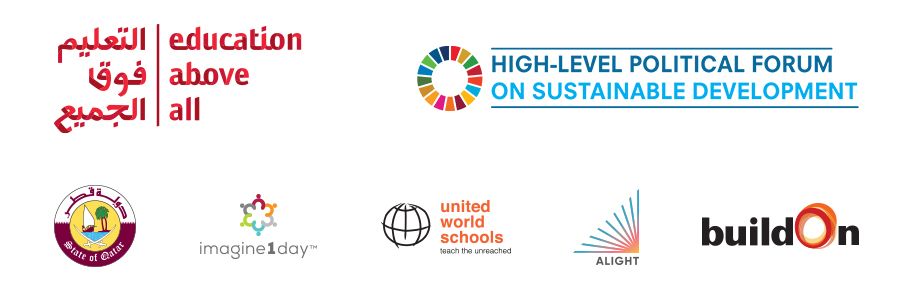during brac's first decade abed also hunted out village mothers and trained them up to be primary schools most joyful educators if death , loneliness are in communities near you think what that community is likely doing to children- start turning things around-eg with playschools why not start matching local clusters of 30 three to 6 year olds with the most loving female teachers www.abedplay.com ... journal edu emergency
probably refugee education more than any other issue requires questioning totally new way of fitting all the age groups and modes of education together - in 2021 we will try and catalogue some of the stages discussing this- educationaboveall is the oldest un 40 country partnership on refugeee education led by qatar's first lady but then politics hit qatar now the momentum of un seems to have totally shifted to educationcannotwait which sees dubai as its big mid east platform www.rewired2021.com
conversely only qatar runs edge world forums on education health, and this summer with bloomberg on economics
12 july 2021
|
|
The Education Above All Foundation’s Educate A Child programme, and its partners invite you to join Coping with COVID vs CREATIVITY in Crisis
A special side event at the
UN High-Level Political Forum 2021 (HLPF)
Monday 12 July at 07:30 am – 09:00 am (ET)
The global coronavirus pandemic thrust upon the world, a collective nightmare. It revealed the egregious deeply-rooted inequities across our societies. Those who were already marginalised and many living a subsistence life became even more vulnerable. The means of modern connectivity through technology were not (and are not still) readily available to the majority of children. The consequences for the hardest-to-reach continue to be severe. Further isolation from learning opportunities was undoubtedly the outcome for millions of children who were already out of school prior to pandemic related school closures.
The forced closure of schools and learning centres only served to deepen the chasm between those children who could access education and those without the resources to do so on their own. Despite the disturbing reality of the situation, this experience presented opportunities to reflect on and to rethink nearly everything previously perceived as normal and taken for granted. However, in many cases, the pandemic prompted resilience and creativity in the face of enormous challenges, and as the world began to shut down, alternate means of education provision emerged.
This virtual event will be a moderated panel discussion, which will permit panellists from EAC-implementing partners the opportunity to offer their remarks, insights and answer context-specific questions about the efficacy of distance education and the respective roles of the community, parents and teachers. After every panellist has had the floor, the moderator will open a Q&A session that will be followed by closing remarks.
Welcome Remarks:- Mr Fahad Al-Sulaiti, CEO, Education Above All Foundation
Moderator:- Ms Sabrina Hervey, Technical Head of West Africa and Asia, Educate A Child
Panel members:- Dr Seid Aman, Country Director, imagine1day
- Mr Nan Sitha, Cambodia Country Director, United World Schools
- Dr Tariq Cheema, Country Representative, Alight
- Ms Rosann Jager, Chief Operating Officer, buildOn
Closing remarks:- Mary Joy Pigozzi, PhD., Executive Director, Educate A Child
|
|
|



No comments:
Post a Comment